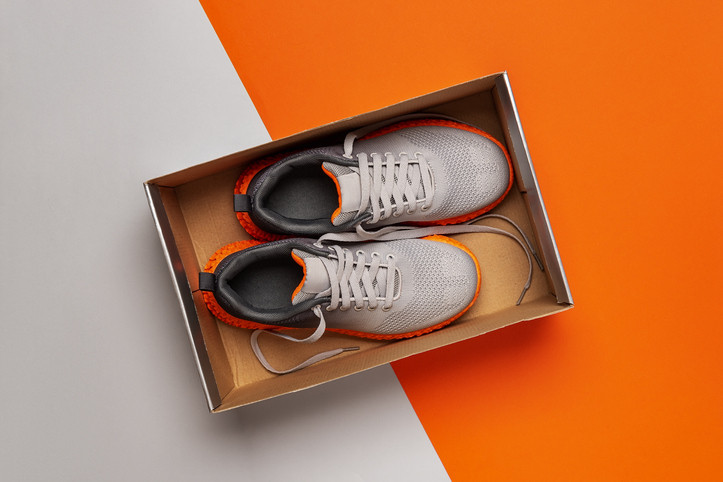Beyond the usual suspects for healthy resolutions
10 often-overlooked, simple ideas for better health.
- Reviewed by Howard E. LeWine, MD, Chief Medical Editor, Harvard Health Publishing; Editorial Advisory Board Member, Harvard Health Publishing

Early in the new year, promises to reboot your health typically focus on diet, exercise, and weight loss. And by now you may have begun making changes — or at least plans — to reach those goals. But consider going beyond the big three.
Below are 10 often-overlooked, simple ideas to step up personal health and safety. And most won't make you break a sweat.
Review your health portals
Your medical information is kept in electronic records. You have access to them through the patient portal associated with your doctor's office. Set aside time to update portal passwords and peruse recent records of appointments, test results, and notes your doctor took during your visits.
"Many studies have shown that when patients review the notes, they remember far better what went on during interactions with their clinicians, take their medicines more effectively, and pick up on errors — whether it's an appointment they forgot to make or something their doctor, nurse, or therapist got wrong in documenting an encounter," says Dr. Tom Delbanco, the John F. Keane & Family Professor of Medicine at Harvard Medical School and cofounder of the OpenNotes initiative, which led shared clinician notes to become the new standard of care.
Doing this can help you become more engaged in your care. "We know from numerous studies that engaged patients who share decisions with those caring for them have better outcomes," he adds.
Ask about health insurance freebies
Your insurance plan may offer perks that can lead to better health, such as:
- weight loss cessation programs
- quit-smoking programs
- free or reduced gym memberships.
Some insurers even offer breastfeeding counseling and equipment. Call your insurance company or take a close look at their website to find out if there's anything that would help you.
Get rid of expired medications
Scour your cabinets for expired or unneeded drugs, which pose dangers for you and others. Look for prescription and over-the-counter medications (pills, potions, creams, lotions, droppers, or aerosol cans) as well as supplements (vitamins, minerals, herbs).
Bring your finds to a drug take-back site, such as a drugstore or law enforcement office, or a medical waste collection site such as the local landfill.
As a last resort, toss medications into the trash, but only after mixing them with unappealing substances (such as cat litter or used coffee grounds) and placing the mixture in a sealable plastic bag or container.
Invest in new sneakers
The wrong equipment can sabotage any exercise routine, and for many people the culprit is a worn pair of sneakers. Inspect yours for holes, flattened arch support, and worn treads. New sneakers could motivate you to jazz up your walking or running routine.
For example, if it's in the budget, buy a new pair of walking shoes with a wide toe box, cushy insoles, good arch support, a sturdy heel counter (the part that goes around your heel), stretchy uppers, and the right length — at least half an inch longer than your longest toe.
Cue up a new health app
There are more than 350,000 health apps geared toward consumer health. They can help you with everything from managing your medications or chronic disease to providing instruction and prompts for improving diet, sleep, or exercise routines, enhancing mental health, easing stress, practicing mindfulness, and more.
Hunt for apps that are free or offer a free trial period for a test drive. Look for good reviews, strong privacy guardrails, apps that don't collect too much information from you, and those that are popular — with hundreds of thousands or millions of downloads.
Make a schedule for health screenings and visits
Is it time for a colonoscopy, mammogram, hearing test, prostate check, or comprehensive eye exam? Has it been a while since you had a dermatologist examine the skin on your whole body? Should you have a cholesterol test or other blood work — and when is a bone density test helpful?
If you're not sure, call your primary care provider or any specialists on your health team to get answers.
Four more simple healthy steps
The list of steps you can take this year to benefit your health can be as long as you'd like it to be. Jot down goals any time you think of them.
Here are four solid steps to start you off:
- Take some deep breaths each day. A few minutes of daily slow, deep breathing can help lower your blood pressure and ease stress.
- Get a new pair of sunglasses if your old ones have worn lenses. Make sure the new pair has UV protection (a special coating) to block the sun's ultraviolet (UV) light, which can cause eye damage and lead to permanent vision loss.
- Make a few lunch dates or phone dates with friends you haven't seen in a while. Being socially connected wards off loneliness and isolation, which can help lower certain health risks.
- Do a deep cleaning on one room in your home per week. Dust and mold can trigger allergies, asthma, and even illness.
You don't have to do all of these activities at once. Just put them on your to-do list, along with the larger resolutions you're working on. Now you'll have a curated list of goals of varying sizes. The more goals you reach, the better you'll feel. And that will make for a very healthy year, indeed.
About the Author

Heidi Godman, Managing Director
About the Reviewer

Howard E. LeWine, MD, Chief Medical Editor, Harvard Health Publishing; Editorial Advisory Board Member, Harvard Health Publishing
Disclaimer:
As a service to our readers, Harvard Health Publishing provides access to our library of archived content. Please note the date of last review or update on all articles.
No content on this site, regardless of date, should ever be used as a substitute for direct medical advice from your doctor or other qualified clinician.















